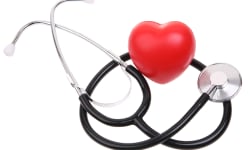Protect your first-aid kit
Travel medication
When you go on vacation, a well-stocked first-aid kit is a must. However, medicines are delicate products and must also be stored safely at the vacation destination and disposed of properly after use.
Especially when traveling to warmer regions, it is important to protect any medication you are taking with you from the sun. The ingredients are often sensitive to heat and light. Improper storage can cause medicines to lose their effectiveness without this being visible on the outside.
"Carrying a first-aid kit with you can save a lot of time in the event of illness and enable rapid medical treatment. People who regularly take medication in particular need to equip themselves accordingly during longer stays," emphasizes Alexander Herzog, Secretary General of Pharmig (Austrian Pharmaceutical Industry Association). "But medicines are delicate products. It is therefore all the more important to handle them carefully and cautiously, especially when traveling."
In hand luggage when flying
Air travelers should take medication with them in their hand luggage to avoid problems at their destination if their main luggage does not arrive. "Anyone taking medication onto the plane must observe the regulations for liquids. A medical certificate in German and English can also help to reduce possible delays at the security check," explains Herzog. You should also ask at the doctor's surgery or pharmacy in good time before departure whether an import permit is required for certain medicines.
Ideally, most medicines should be stored at temperatures below 25 degrees Celsius. This is not always easy, especially on hot summer days or on vacation. Here are a few tips from the Austrian Chamber of Pharmacists on how to cool and store your medicines correctly so that they remain effective:
Keep medicines in the room
Extreme temperature fluctuations, humidity, UV light or high temperatures over a long period of time can destroy a whole range of medicinal substances or at least damage their effectiveness. As a general rule, medicines should therefore be stored in the coolest room in the home (e.g. bedroom), in a dry place and protected from light.
UV light is the most dangerous
Heat is not usually the "killer" for sensitive substances, but rather they react sensitively to too much UV light or to freezer temperatures. Insulin, for example, can be stored in the fridge at around eight degrees, but lasts perfectly for a month at temperatures of 30 degrees, whereas sub-zero temperatures or sunlight destroy it very quickly.
Medicines react differently
- Effervescent tablet tubes usually come with a desiccant, as this form of medicine does not tolerate moisture. They should therefore be resealed well after each use, as should tablet containers.
- If painkillers such as aspirin are exposed to high temperatures and humidity for a long time, the active ingredient breaks down into salicylic acid and vinegar - this is noticeable by a pungent odor and means that the painkillers are unusable.
- High temperatures are particularly dangerous for active ingredient patches for heart and pain patients or for contraception: the heat changes the distribution of the active ingredient in the patch as well as its release through the skin. Natural remedies and asthma sprays are also very sensitive to heat.

Wöchentlich topinformiert über Medizin und Gesundheit
Medication requiring refrigeration
Many medicines are considered to be refrigerated items and must be stored at a maximum temperature of eight degrees Celsius. Medicines subject to cold chain requirements, e.g. vaccines or insulin, must be cooled between two and eight degrees Celsius throughout the entire supply chain and also during storage without interruption. Some metered dose inhalers for asthma and some glaucoma eye drops must also be refrigerated continuously. If a medicine requires refrigeration, this is indicated on the packaging.
This article has been automatically translated,
read the original article here.



















Kommentare
Willkommen in unserer Community! Eingehende Beiträge werden geprüft und anschließend veröffentlicht. Bitte achten Sie auf Einhaltung unserer Netiquette und AGB. Für ausführliche Diskussionen steht Ihnen ebenso das krone.at-Forum zur Verfügung. Hier können Sie das Community-Team via unserer Melde- und Abhilfestelle kontaktieren.
User-Beiträge geben nicht notwendigerweise die Meinung des Betreibers/der Redaktion bzw. von Krone Multimedia (KMM) wieder. In diesem Sinne distanziert sich die Redaktion/der Betreiber von den Inhalten in diesem Diskussionsforum. KMM behält sich insbesondere vor, gegen geltendes Recht verstoßende, den guten Sitten oder der Netiquette widersprechende bzw. dem Ansehen von KMM zuwiderlaufende Beiträge zu löschen, diesbezüglichen Schadenersatz gegenüber dem betreffenden User geltend zu machen, die Nutzer-Daten zu Zwecken der Rechtsverfolgung zu verwenden und strafrechtlich relevante Beiträge zur Anzeige zu bringen (siehe auch AGB). Hier können Sie das Community-Team via unserer Melde- und Abhilfestelle kontaktieren.